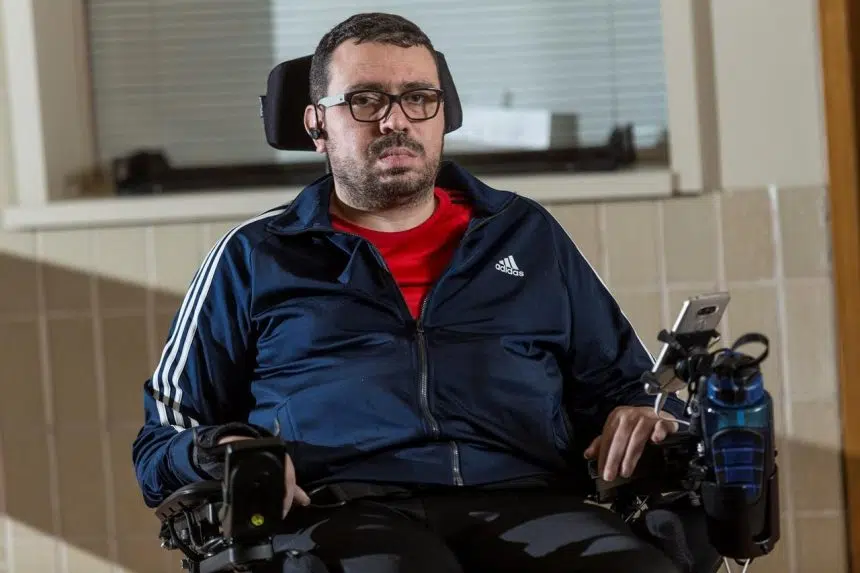MONTREAL — A fundraiser to find a new home for a man who lost use of his legs in the Quebec City mosque shooting earlier this year has reached almost half its goal.
Aymen Derbali, a father of three, was one of the more than 50 people inside the mosque when a shooter opened fire last Jan. 29, killing six.
He took seven bullets and was paralyzed from the waist down.
The objective is to raise the $400,000 before the first anniversary of the shooting.
Derbali, 41, told The Canadian Press on Wednesday that he was touched when he learned about the fundraising campaign.
“I’m very glad to hear that a lot of Canadians, Americans and some people all around the world are aware of my situation,” he said in a phone interview.
“This is heart-warming for me and it helps me in my rehabilitation and psychologically … (and) it gives me a smile again.”
Derbali has been undergoing therapy at a rehabilitation centre since the shooting, but will soon be discharged.
But doctors have urged him not to return to his fourth-floor apartment because he has limited mobility.
He’s now looking for a new home closer to the mosque.
Amira Elghawaby, a volunteer with DawaNet, a Canadian-Muslim non-profit organization that has been raising money for his new home, said that it has been a slow recovery for Derbali, who is now in a motorized wheelchair.
“He does have some movement in his arms, but he will unfortunately never walk again,” Elghawaby said. “He is fully paralyzed pretty much from the chest down.”
Derbali still has two bullets lodged in his spine.
He said Wednesday that he has started to use part of his fingers again and has begun eating with his right hand.
The fundraising to pay for his new residence began ten days ago and Elghawaby said the response has been overwhelming.
“This is a story that has deeply resonated with Canadians and we all remember the terrible news of the massacre on Jan. 29,” she said.
Elghawaby added that Derbali still wants to live close to the mosque.
“Despite all he’s been through and the memories he must have, Aymen is still very much attached to that mosque and the community,” she said.
“He goes now every Friday for the Friday prayers in his wheelchair.”
Elghawaby said one of the 50 homes that have been looked at is a strong possibility, but doctors will decide if it’s suitable.
It was previously owned by someone with a disability, so it has widened doorways and no steps on the ground floor.
Elghawaby said the residence is close enough to the mosque to allow Derbali and his family to get there easily.
Peter Rakobowchuk, The Canadian Press







